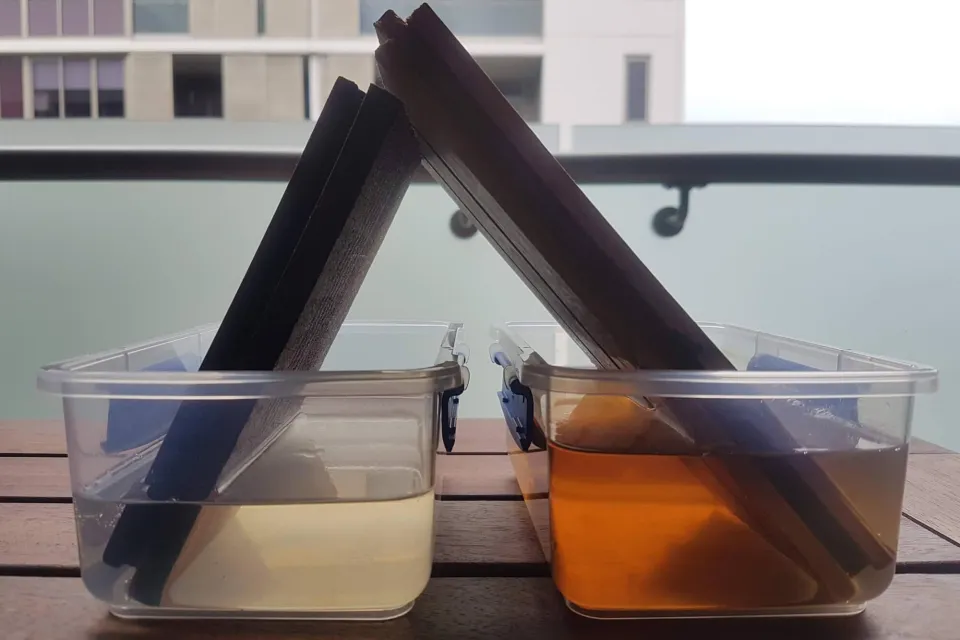-
About
-
Products
- By Timber Product
- Cladding
- Decking
- Screening
- Panelling
- View all
- By Application
- Exterior Cladding / Siding
- Exterior Rain Screen
- Interior Walls & Ceilings
- Soffits
- Screening, Fins & Battens
- Windows, Doors & Joinery
- Posts & Beams
- Accessories
- Coatings
- Fixings
- Samples
-
Resources
- Projects
- Contact
How to Minimise Timber Leaching and Tannin Bleed
Leaching or tannin bleed, is when timber cladding or decking bleeds onto the surrounding surfaces. What can you do to minimise this?
Leaching, sometimes known as tannin bleed, is when your timber cladding or timber decking bleeds or leaks onto the surrounding surfaces.
Tannins are natural extractives present in certain timbers, and this leaching can cause unsightly stains on surrounding materials, most notably light coloured ones.
Leaching commonly occurs when certain timbers, for example Kwila (Merbau), Spotted Gum, Blackbutt, Balau and Tallowood are exposed to rain without a sealant or coating.
The tannin leaching can continue for months, particularly with timbers that have a high tannin content such as Kwila or Merbau.
The majority of tannin bleed comes from the ends of a timber board, which is to do with the cell structure.
The timber cell structure can be likened to millions of plastic straws bundled tightly together - so if a lot of water travels down the board it 'flushes' out the tannins in the wood causing the surrounding surfaces to become stained.
Have you ever noticed how discoloured river water is? This is in part due to the tannins from the surrounding trees.
The most common solution is to use a ‘tannin remover’. However, more often this only reduces the ‘natural extractives’ in the timber rather than eliminating them completely.
It may be possible to reduce tannin leaching by washing the timber with deck washes and timber cleaners, although in most cases this reduces, rather than eliminates the tannin bleed.
Tannin stain is not only unsightly, but can it can block the cell structure of the wood preventing it from absorbing timber coatings evenly, in some cases giving an overall dull and patchy look. This means that tannin rich timbers typically need a thorough cleaning prior to coating.
The most effective solution for leaching, is to use a thermally modified timber such as our Vulcan timber.
Vulcan timber has been thermally modified, with almost all of the tannin being removed during this process. This means tannin bleed is highly unlikely, allowing home owners to rest easy.
For samples or more information, please get in touch.

